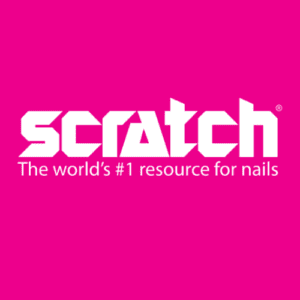
What it takes to become a nail industry educator
By Scratch Staff | 25 October 2018 | Feature, Tech Talk

Industry veteran and Scratch Stars award winner, Sue Davies, reveals what it means to be an educator in the nail realm…
 Education is one of the most important areas in our industry. It drives us towards our goals or skill enhancement and helps us to build our career. However, in today’s world of accredited training, everyone can be an educator and many people want to be. This has led to a dilution of quality nail education.
Education is one of the most important areas in our industry. It drives us towards our goals or skill enhancement and helps us to build our career. However, in today’s world of accredited training, everyone can be an educator and many people want to be. This has led to a dilution of quality nail education.
If you want to be an educator, don’t expect to run before you can walk.
Professional brands will usually look for at least two years (and sometimes up to five years) proven experience in your area of knowledge. It is unusual in today’s world to be able to teach without a recognised education/teaching qualification such as PTLLS (or above) or the new AET.
The current minimum education qualification is the Award in Education & Training at Level 3. You can then go through to Level 4 and Level 5 (degree level) in Education & Training.
These courses are costly, but in some circumstances, you may be able to obtain funding or sponsorship depending on how and where you want to teach. It is an investment in your own education and your future so make sure you choose your course wisely and speak to education providers you wish to work with what they require and if they can offer support.
Before you embark on your journey to be an educator, make sure your own education is up-to-date and that you understand every element of what you will be teaching. There’s nothing worse than being on a course where the educator can’t answer a basic question without looking it up.
The student perspective
Students should be checking an educator’s background and experience. If the student is unsure or can’t find out the information, they should think about the investment and consider an educator that can. Therefore, it is important that educators have the skills, qualifications and experience to teach as potential students should and will be checking you out once you are educating.
Education isn’t just about being able to do a set of nails well; it’s about being able to impart the chemistry, structure, anatomy, physiology and the full theory behind nails or whatever is being taught. The practical element is only part of the learning.
The ability to pass on the vital underpinning knowledge to learners with comprehensive information and passion is the best sign of a good educator.
Once you’ve gained all the required skills and qualifications, then the hard work begins. If you haven’t signed up to work with a professional brand and wish to remain independent, you will need to work with an awarding body or an accreditation provider and decide if you will teach short courses or only national level qualifications such as NVQs.
Each pathway brings different levels of assessment and criteria for the education provision. Empowering future techs is an honour for all those in education.
Education shouldn’t be easy! It should challenge and inspire; it should help you evolve into the professional you want to be.
Sue Davies is soon to launch nabuno, a dedicated nail, beauty and hair education site to highlight good education practices and courses within the nail industry.

Read the latest issue









